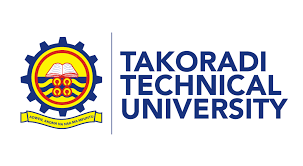Throughout mankind’s history, seeking new ways to improve the standard of living has always been the driving force behind new developments. That’s why engineering is an important aspect of life, especially in Africa.
The institutions and curricula that produce these engineers are more important than the profession. In Ghana, many engineering courses can help to improve your credentials and award certificates if you intend to pursue engineering as a course.
This writing will guide you on the best engineering courses in Ghana that you can pursue in 2024. Make sure that each course will impart the required knowledge and practical experience that you require in the field of engineering.
Table of contents
- About Engineering?
- Why Choose Engineering Courses in Ghana?
- 12 Best Engineering Courses in Ghana and Where to Study Them
- #1. Civil Engineering
- #2.Mechanical Engineering
- #3. Electrical and Electronic Engineering
- #4.Chemical Engineering
- #5. Petroleum Engineering
- #6.Computer Engineering
- #7.Biomedical Engineering
- #8. Mining Engineering
- #9.Environmental Engineering
- #10. Agricultural Engineering
- #11.Aerospace Engineering
- #12. Marine Engineering
- How to Choose the Right Engineering Course
- How To Become a Professional Engineer in Ghana
- FAQs
- Conclusion
- References
- Recommendations
About Engineering?
Engineering is mainly about applying math and science to tackle different practical problems. They translate ideas from scientists and inventors by creating the actual structure or object in the physical world.
STEM education, which focuses on teaching science, technology, engineering, and mathematics, has included engineering for thousands of years, even though the concept of STEM is relatively modern.
Architectural achievements attributed to antique engineering encompass the Parthenon, Stonehenge, and the Pyramids of Giza.
Today, though, engineers are not only limited to constructing buildings and bridges but are also responsible for designing artificial limbs, engines, transport mechanisms, and even exploring renewable energy. In other words, engineers are universal, and they are making the world a better place.
See also: NVTI Courses List and Fees in Ghana | All You Need to Know
Why Choose Engineering Courses in Ghana?
Ghana offers several engineering, technical, medical, social, arts, vocational, and business courses.
Choosing to study engineering in Ghana is a smart move. Ghana is home to some of the best colleges and technological institutions in Africa, and they offer excellent engineering courses.
The mentioned schools are characterized by a professional curriculum, highly qualified staff, and infrastructure designed to help students succeed in engineering.
However, the problem is not only with the quality of education and training. Currently, Ghana’s engineering schools are beginning to distinguish themselves as centers that churn out highly qualified engineers to meet the demands of various industries.
Another advantage is that students get these engineering courses attached with certificates accepted globally and locally. This implies that opportunities to find employment after the course will be easier to come by regionally and internationally, depending on the country of choice.
Thus, if Engineering is your career of interest, Ghana offers one of the best packages regarding quality education, recognition, and practical experience. It is a good place to start the foundation for a promising engineering career.
See also: 15+ Graphic Design courses in Ghana |Requirements, and Fees
12 Best Engineering Courses in Ghana and Where to Study Them
#1. Civil Engineering
Civil engineering is one of the most popular fields of engineering amongst students in Ghana, and now you know why. Often known as Civil Engineering, this field is all about creating, constructing, and servicing systems that support the earth’s day-to-day operations.
This is the case in Ghana, where towns and cities are slowly transforming through urbanization, hence the need for qualified civil engineers. New public structures, including schools, hospitals, markets, and other social infrastructure, houses, roads, and other infrastructural facilities, are being demanded more as many people shift away from rural settings and move closer to urban centers.
This makes the civil engineering field relevant and worthwhile not only in Ghana but all over Africa. It is among the guaranteed degrees that will help one secure decent pay.
When you choose civil engineering, you will have a clear understanding of the field’s basics, including structural analysis, material science, and civil and environmental engineering.
Where to Study:
#2.Mechanical Engineering
Another broad special field of engineering, which you can take as your specialization, is Mechanical Engineering. This course focuses largely on the design, analysis, and manufacturing of mechanical systems.
This might be the right decision if you ever wanted to know how engines work, how those machines are built, or how we could enhance this technology for sectors like energy, automotive, and aeronautics.
You will also find out how a particular machine works and its efficiency and how to determine how to make it more efficient, faster, and less cumbersome.
Where to Study:
- Kwame Nkrumah University of Science and Technology (KNUST)
- Accra Technical University
- University of Mines and Technology (UMaT)
- Takoradi Technical University
- Ashesi University
#3. Electrical and Electronic Engineering
Electrical and Electronic Engineering is yet another interesting course of study that combines electrical, electronics, and electromagnetic engineering.
At the end of this program, students are awarded a Bachelor of Science (BSc) in Electrical and Electronic Engineering.
They also have an opportunity to further their training by acquiring professional licenses from recognized professional bodies such as the Ghana Institution of Engineers. This, in turn, can improve their qualifications and increase their chances of getting better employment opportunities.
If you wish to learn how electricity affects our lives or how electronics come to life, this course is for you. You will learn about circuits, motors, and generators or how to create technology ranging from electrical power supply to smartphones.
Where to Study:
- Kwame Nkrumah University of Science and Technology (KNUST)
- University of Mines and Technology (UMaT)
- University of Ghana
- Accra Technical University
- Cape Coast Technical University
See also: Official List of Ghana Telecom University Courses and their Cut-off Points
#4.Chemical Engineering
Chemical Engineering is a branch of engineering that applies chemistry, physics, and biology to convert substances into something useful. In this course, you will learn how to design methods that transform materials into products we use daily with the least risk and or danger.
In this program, you will be trained to lay a chemical plant, understand the processes that produce useful products through chemical reactions, and consider ways of making these processes more efficient and environmentally friendly.
After completing Chemical Engineering, one is awarded a BSc in Chemical Engineering, and one can further his or her education for more certifications in subsectors such as process, environmental, or bioprocessing engineering, among others.
Where to Study:
- Kwame Nkrumah University of Science and Technology (KNUST)
- University of Ghana
- Accra Technical University
- Cape Coast Technical University
- Takoradi Technical University
#5. Petroleum Engineering
You know that the oil and gas industry in Ghana is expanding tremendously. Petroleum Engineering is amongst the most practical and financially rewarding courses you can take if you want to work in this industry.
Therefore, if you are interested in the energy sector and would like to work in an industry that drives economic growth, this course is suitable for you.
The Petroleum Engineering course is called Petroleum Engineering and includes courses such as drilling technology, reservoir engineering, production operation, etc. You will also find information about environmental and safety aspects, as they are necessary in selected industries.
After completing the program, the learner is awarded a Bachelor of Science (BSc) degree in Petroleum Engineering and can pursue several careers in the energy sector.
Where to Study:
- Kwame Nkrumah University of Science and Technology (KNUST)
- University of Mines and Technology (UMaT)
- University of Ghana
- Takoradi Technical University
- Accra Technical University
#6.Computer Engineering
Because the world is now going digital, Computer Engineering is one of the most exciting and important fields. This course integrates computing and electrical systems to create the hardware and software of today’s technologies.
Therefore, if you love everything that is related to technology, and innovation and if you enjoy problem-solving Computer Engineering Technology could be for you.
Here, you will discover how a computer starts from the basic components and how everything works. You will learn how to construct computer systems, undertake software development, and ensure that the construction and development process and the end product are effective and safe.
Where to Study:
- Kwame Nkrumah University of Science and Technology (KNUST)
- University of Ghana
- Ashesi University
- Ghana Technology University College
- Accra Institute of Technology (AIT)
See also: GIJ Courses and Fees | 2024 Admission Requirements, Location
#7.Biomedical Engineering
Biomedical Engineering is a major that combines engineering and medicine or health care. This excellent course is designed for people aspiring to transform the healthcare sector. Biomedical engineers design medical equipment, disease diagnostic instruments, and health care technologies.
Here, you will learn how to use engineering techniques to solve biological and medical questions. You will also undertake projects that involve designing artificial limbs/ organs and other imaging equipment, such as MRI and CT scanners.
Students are awarded the Bachelor of Science in Biomedical Engineering (BSc). They also can take the chance to obtain additional licenses in such fields as bioinformatics, medical device design, or tissue engineering.
Where to Study:
- Kwame Nkrumah University of Science and Technology (KNUST)
- University of Ghana
- University of Cape Coast
- Accra Technical University
- All Nations University College
#8. Mining Engineering
Mining Engineering is a course for students who are passionate about mining minerals from the surface of the earth.
In this course, you will learn about designing a mine, managing its operations, and ensuring the safety and environmental sustainability of mining. You will also learn how to undertake mining projects’ planning and management. This affirms that mining operations are done safely, economically, and optimally.
Mining Engineering provides an opportunity to work in a crucial sector that delivers materials necessary for the production of a wide range of goods we consume daily.
Students are conferred with a Bachelor of Science (BSc) in Mining Engineering, which allows them to apply for different positions within mining companies.
Where to Study:
- University of Mines and Technology (UMaT)
- Kwame Nkrumah University of Science and Technology (KNUST)
- University of Ghana
- Takoradi Technical University
- Kumasi Technical University
See also: University of Education Winneba courses and Grades | 2024 Fees
#9.Environmental Engineering
Environmental Engineering is a discipline that entails knowledge of how to deal with environmental issues and, where necessary, apply engineering solutions. Environmental engineers contribute to the solution of the following crucial problems: water and air pollution, waste disposal, and the creation of a source of energy.
Here, you will acquire knowledge of the proper ways to minimize harm to the environment and people’s well-being and promote sustainable development.
Graduates are awarded a Bachelor of Science (BSc) in Environmental Engineering; career development can be further enhanced through certifications that may include those offered in waste management, renewable energy, or environmental audits.
Where to Study:
- Kwame Nkrumah University of Science and Technology (KNUST)
- University of Energy and Natural Resources (UENR)
- University of Cape Coast
- Ashesi University
- University of Development Studies (UDS)
#10. Agricultural Engineering
Agricultural Engineering is a special interdisciplinary branch that combines engineering, the knowledge of which is used to enhance agricultural procedures and agricultural science.
Every day, agricultural engineers develop and enhance automated farming tools, methods of right watering, and commonly used gadgets that contribute to the realization of the concept of “more yield for less.”
In this course, you will be able to understand and apply engineering principles to issues on soil, crop production, and livestock farming. You will also learn about the current farming techniques and practices of water use and the creation of new technologies in agriculture.
Graduates obtain the degrees of Bachelor of Science (BSc) in Agricultural Engineering allowing the graduates to work in the agricultural setting.
.Where to Study:
- Kwame Nkrumah University of Science and Technology (KNUST)
- University of Ghana
- University of Cape Coast
- University for Development Studies (UDS)
- University of Energy and Natural Resources (UENR)
#11.Aerospace Engineering
Aerospace Engineering is an innovative and challenging program that entails the architecture and construction of flying machines and space vehicles. Although this course is relatively young in Ghana, you are assured of having opportunities in aviation and space exploitation.
In this program, you will learn about how aircraft and spacecraft are designed, especially regarding aerodynamics of motion, energy, and materials used. You will also learn about the technology and procedure in flight tests and maintenance, safety measures, among other things.
Graduates are awarded the Bachelor of Science (BSc) degree in Aerospace Engineering and have the additional opportunity for certification in aviation-related categories, including avionic, flight operations, aircraft maintenance, etc.
Where to Study:
- Kwame Nkrumah University of Science and Technology (KNUST)
- University of Ghana
- Regional Maritime University (RMU)
- University of Cape Coast
- Accra Institute of Technology (AIT)
#12. Marine Engineering
Marine Engineering is the branch of Engineering that deals with the Engineering of ships, underwater craftsmen, submarines,s and offshore buildings.
Marine engineers have vital roles in ensuring that ships are safe, economical, and friendly to the environment.
Here, you will study some aspects of ships such as offshore ships’ design, propulsion, and engineering. You will also learn about Naval Architecture, hydrostatics, fluid dynamics, and Ocean science.
After completion of the course, students are awarded a Bachelor of Science (BSc) in Marine Engineering, which can be used to seek employment in the maritime and offshore sectors.
Where to Study:
- Regional Maritime University (RMU)
- Kwame Nkrumah University of Science and Technology (KNUST)
- University of Ghana
- Accra Technical University
- Takoradi Technical University
See also: Kumasi Technical University Courses and Fees 2024
How to Choose the Right Engineering Course
At times, it could be very challenging for you to determine the Engineering courses you wish to pursue. Well, here are some tips that will help you make the right choice:
- Assess Your Interests: When selecting your course, consider your unique interests or career objectives.
- Consider the Job Market: You have to investigate how much employers in your area of specialization seek engineers in Ghana and possibly on the global market.
- Check Accreditation: It is also essential to ensure that the course and the institution you wish to join are accredited to be assured of quality standards.
- Think About Future Opportunities: You must ensure that the course will provide opportunities to study or to advance your skills.
See also: Sunyani Technical University Courses, Fees and Admission
How To Become a Professional Engineer in Ghana
- Make sure this is done by registering as a Trainee Professional Engineer (TPE) to become a Professional Engineer (PE) or registering as a Trainee Professional Engineering Technologist (TPET) to become a Professional Engineering Technologist (PET).
- Be in good standing
- Attend the Pre-Examination workshop.
- Please ensure that you fill out and submit your Career Report before the deadline.
- Wait for the approval of the Career Report.
- Receive an invitation for the seat of examination.
- Pay the participation fee.
- Seat for the exam
See also: Official List of Courses Offered at UCC (University of Cape Coast) | 2024
FAQs
It takes four years to study engineering in Ghana.
However, there is a high demand in Ghana for graduates in manufacturing, civil, industrial, construction, and technical engineering.
The gross salary range for people working in Ghana in Mechanical Engineering is typically from 1,201 GHS (minimum salary) to 3,528 GHS (highest average, actual maximum salary is higher). This is the total monthly salary including bonuses. Salaries can vary drastically among different job positions.
The College of Engineering is one of six colleges at Kwame Nkrumah University of Science and Technology in Kumasi, Ghana.
Conclusion
Numerous engineering courses are offered in universities in Ghana to meet the interests and needs of students and the market. You can also take specific courses, such as civil engineering, computer engineering, or even aerospace engineering, that will enable you to accomplish your dreams.
These courses are accompanied by certificates that increase your portfolio and your chances of getting the desired job in the engineering industry.
References
- Edurank.org – Best universities for Engineering in Ghana
- Ghstudents.com – Universities Offering Engineering Courses in Ghana
- Ghstudents.com – How to Become an Engineer in Ghana
Recommendations
- AAMUSTED Courses and Cut off Points| 2024 Requirements and Fees
- 10+ Best Social Science Courses in Ghana | Universities, Fees and Requirements
- Official List of Tamale Technical University Courses and Fees| 2024
- Top 10 Six Months Pharmacy Courses in Ghana | Fees and Requirements
- Koforidua Technical University Courses and Fees | 2024 Admission Requirements






